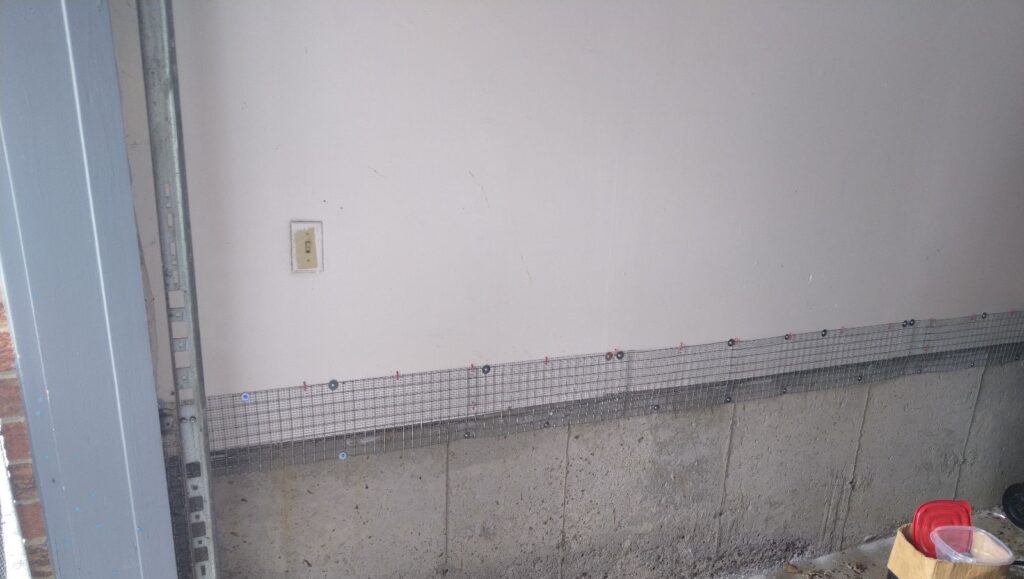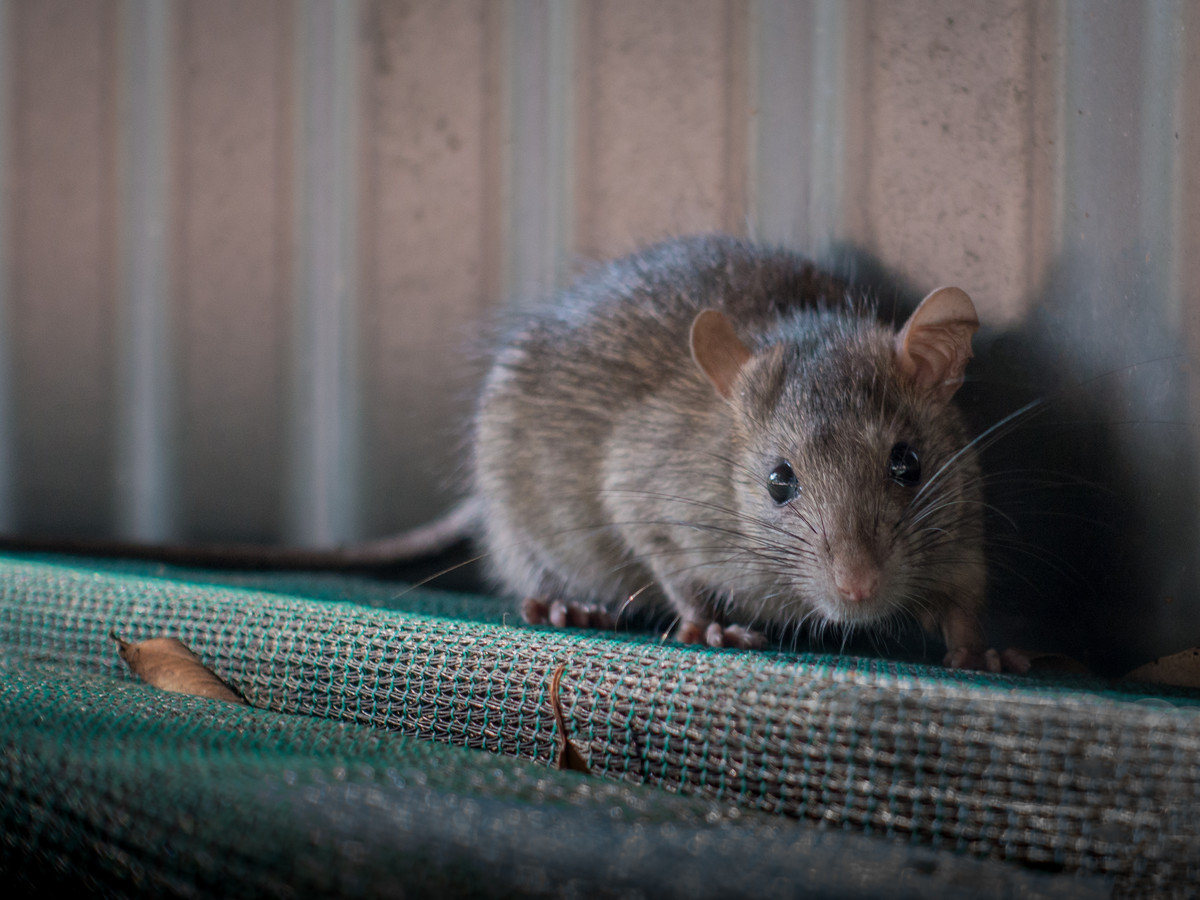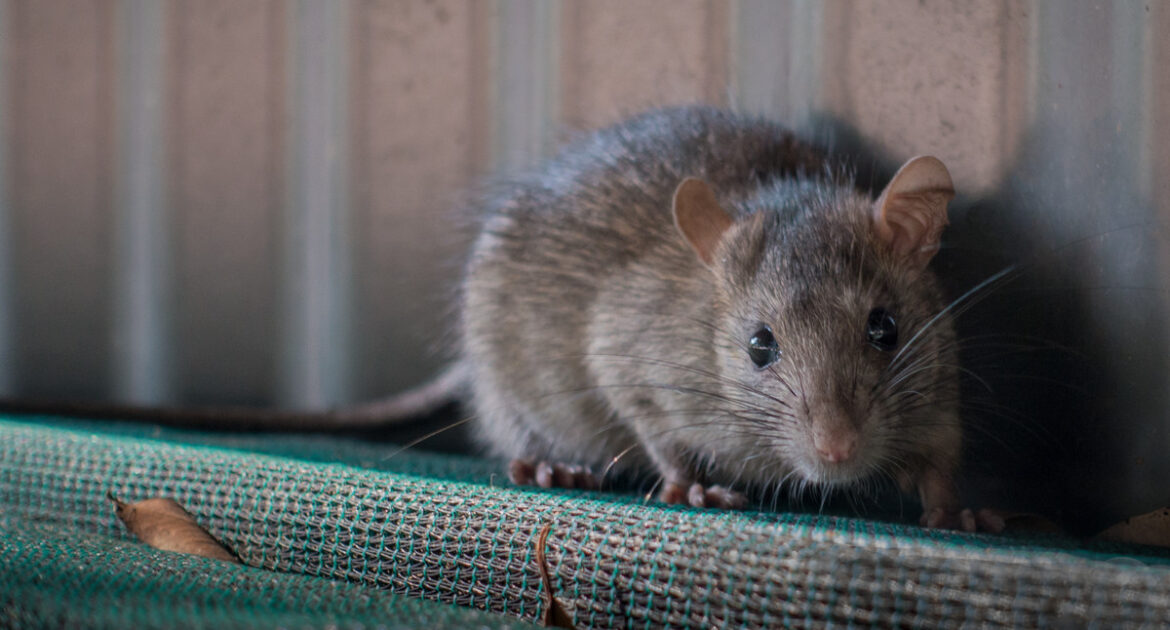As homeowners in Ottawa, we cherish our homely spaces and surrounding land. However, sometimes uninvited guests show their heads, causing discomfort and potential damage.
Yes, this refers to the infamous rodents you might be sharing your environment with, especially the rat variety. Having a rodent problem is a worry we all would rather avoid, hence the importance of fortifying our homes against such invasions.
Switching our glance to this common yet concerning issue, our primary focus will be offering you effective deterrent strategies to shield your residence against any unwanted visitors.
So, sit tight and gear up to arm your home with the best line of defence. With our specialized wildlife control techniques, you can have peace of mind that your home will remain rodent-free and safe for you and your family.
What Types of Rats are Commonly Found in Your Home?
While many use the term “rat” loosely to refer to any unwelcome rodent intruder, in fact, there are several different types you might encounter on your property. Being able to identify the type of rat you’re dealing with is the first step towards effective prevention and removal strategies.
- Norway Rats: These are large-bodied rats, typically brown or grey in colour. They are often found in burrows outdoors or in lower levels of buildings. The Norway rat is known for its gnawing behaviour, which can lead to property damage.
- Roof Rats: As their name suggests, Roof rats prefer higher places, like your house’s attic. They have elongated bodies and are usually black or dark brown. During the mating season, their distinctive sound may give away their presence.
- House Rats: House rats, or black rats, are notorious for their adaptability. Often found in warm, coastal regions, they can easily make their homes in human structures and have a reproductive cycle that rapidly increases their population.
Understanding the types of rats that may invade your home is key to prevention and successful removal. Identifying the specific rat infestation not only enables local wildlife removal specialists to implement effective strategies but also aids in preventing future infestations.
What are the Signs of a Rat Infestation?
Unwanted lodgers, such as rodents on your property, can be a cause for concern. To curb this issue, it is essential to identify the early signs of a rat infestation, enabling you to implement necessary prevention strategies timely. Here are some obvious indicators:
- Gnaw Marks: One of the most common signs of rats is gnaw marks on wooden structures, insulation, and even electrical wires.
- Rat Droppings: These critters tend to leave tiny, dark droppings in their common routes and feeding areas.
- Nests: Rats build nests from shredded material such as cloth or paper. Discovery of such nests in secluded areas may be a clear sign of a rat infestation.
- Scratching Sounds: You may frequently hear scratching sounds within your walls or attic, especially during nighttime when rats are most active.
- Rat Tracks: Dusty areas of your property may reveal tracks or tail marks indicating rat movement.
Timely recognition of these signs is vital to the implementation of our local wildlife control measures to get rid of rats on your property. When found, it’s important not to delay in seeking professional help for rodent control to prevent further infestations and safeguard your habitat.
What are the Health Risks Associated with Rat Infestations?
Rats scurrying around on your property don’t merely pose a nuisance; they bring along myriad health risks for you and your family as well. Understanding these hazards is crucial in realizing the urgency of employing effective prevention strategies for these rodents. Let’s discuss some of the main health risks associated with rats:
- Hantavirus Pulmonary Syndrome (HPS): This is a potentially deadly disease which one can get through inhaling air infected with rat droppings or urine or by direct contact with rats or their nesting materials.
- Bubonic Plague: Also known as the ‘Black Death,’ this disease is primarily spread through the bites of fleas living on infected rats.
- Leptospirosis: People can be infected with this bacterial disease through contact with rat urine or water, soil, or food contaminated by it.
- Rat-Bite Fever (RBF): It’s a systemic bacterial illness that can be acquired through a rat bite or scratch, or even handling an infected rat.
- Salmonellosis: Consuming food or water that’s contaminated by rat feces could result in this form of food poisoning.
Given these potential health risks, it’s clear that these pests aren’t a matter to be brushed under the rug. Proactively seeking local wildlife removal services can provide you with robust strategies to safeguard your property against these indifferent intruders and, more importantly, ensure the health and safety of your household.
What Dangers Do DIY Rodent Control Methods Pose?
As a homeowner, chances are, you consider DIY solutions as a cost-effective way to tackle rodent problems. However, managing these unwelcome guests on your property is not always straightforward. There are inherent risks associated with DIY methods of rodent control which you need to understand before setting out on this journey:
- Exposure to Diseases: Rats are notorious carriers of various diseases such as Hantavirus, Leptospirosis, and Rat-bite fever. Attempting to handle these rodents without proper training can expose you and your family to these dangers.
- Incorrect Usage of Control Tools: From traps to rodenticides, the improper use of control tools can lead to unintended injuries or exposure to harmful chemicals, posing a serious health risk.
- Incomplete Removal: DIY methods might only address symptoms of the problem (the visible rats), but often ignore the root cause, such as food sources, breeding areas, and entry points. This leads to recurring infestations over time.
- Negative Impact on Wildlife: Effective rodent control requires knowledge of the species’ behaviour to avoid unnecessary harm to them or disruption of local ecosystems during the active reproductive season.
- Legal Issues: In many places, certain wildlife removal practices are regulated by law, especially concerning specific mating behaviours. Improper ‘do-it-yourself’ approaches could breach such regulations, leading to potential legal trouble.
In the long run, these risks highlight why local rodent control like ours is best left to professionals. Our well-trained technicians prioritize not only the safety of the homeowners but also the well-being of the wildlife, ensuring a comprehensive and humane approach to the issue. Experience the difference by connecting with professionals when dealing with a rodent infestation.
What are Some Strategies for Rat Prevention?
As we dig deeper into managing rodents, it’s paramount for property owners to imbibe these ten practical and strategic measures to discourage these uninvited guests from taking residence. Let’s dive in:
- Maintain Outdoor Cleanliness: Keeping your yard free from junk and organic waste can dissuade rodents from nesting. This involves regular trimming of excess vegetation and proper disposal of leftover food items.
- Secure your Garbage Bins: Rodents are notorious scavengers. Ensuring that trash bins are tightly sealed can lower the prospects of these creatures being attracted to your property.
- Seal Possible Entry Points: You should diligently check for holes or cracks around the house and seal them immediately. Weather stripping on doors and windows can come in handy, too.
- Practice Proper Food Storage: Food items, especially grains, should be kept in rodent-proof containers since they mainly invade houses in search of food.
- Keep your Indoor Spaces Clean: Regular cleaning and de-cluttering of your home, basement, and attic could prevent them from hiding and breeding.
- Regular Inspection: Routine checks around the house for infestation signs are imperative to nip the issue in the bud.
- Pet Assistance: Pets, especially cats, can help deter rats from invading your property by their mere presence and predatory instinct.
- Professional Intervention: When everything else fails, it is always advisable to contact a local wildlife control expert. They are trained in rodent control strategies and can provide the necessary services for removal.
What are the Steps to Get Rid of Rats with the Help of a Wildlife Technician?
Navigating the intricacies of intervening with unwelcome rodents on your domain requires a skillful approach. Engaging a wildlife technician’s services dramatically enhances the chances for successful control and prevention. Here’s an overview of the process:
- Inspection: An initial assessment identifies the species, locates entry points, and evaluates the infestation extent.
- Removal: Utilizing humane capture techniques, the wildlife technician ensures the least disruption while securing the intrusive rodents.
- Preventing Re-entry: A comprehensive sweep of the premises identifies potential breaches that are then carefully sealed to avoid future invasions.
- Sanitation: Post-removal, thorough cleaning ensures removal of all rodent traces, thus diminishing the likelihood of attracting more pests.
- Education: The expert provides valuable guidance on maintaining your home environment less enticing to rats.
Our role goes beyond mere removal. We provide a holistic approach ensuring your home remains free from infestations. The path to a rat-free property might seem daunting, but help is just a call away. Get the best local assistance for your rodent concerns right away!
What are the Benefits of Hiring a Professional Wildlife Technician for Rat Removal and Prevention?
When it comes to eliminating unwelcome furry visitors from your property, you might be pondering, “Who to call for rodent control?” Well, without a doubt, it’s always best to engage the services of a professional wildlife technician. The advantages are manifold, and we’ll examine some of the key ones:
- Comprehensive Assessment: Their extensive training lets them quickly identify and understand the behaviours of these unwelcome guests. They can interpret signs that might go unnoticed by an untrained observer.
- Effective Removal: When it comes to local wildlife removal, experts use humane and effective methods. With a clear grasp on the reproductive behaviour of these creatures, they also ensure they address the issue from the root, mitigating the chances of a future infestation.
- Prevention Measures: Upon successful evacuation of the rodent guests, professionals implement robust prevention strategies. These include proofing entry points to discourage potential invasions.
- Health Safety: Engaging a professional ensures safety from the possible zoonotic diseases caused by these rodents. You also don’t need to worry about handling any hazardous sprays or chemicals.
- Time and Cost-Efficient: You might think going down the DIY path will save you some dollars. But when you consider the purchase of ineffective over-the-counter products and the time taken to control the infestation by yourself, hiring a professional proves to be a cost- and time-effective solution.
So, protect your home or establishment from these mooching mammals by getting a professional like Skedaddle involved. It’s an investment for a healthy, safe, and rodent-free space.

Why Skedaddle Humane Wildlife Control Is The Right Choice For Rodent Problems
As your local defenders against unwanted critters, our team stands ready to assist in solving your rodent situation. Our humane approach to rodent control, combined with our extensive knowledge and experience, makes us the foremost authority in the field. But don’t just take our word for it – see for yourself why we are the preferred solution for homeowners looking for an effective rodent removal service.
Are you curious about how to get rid of rats lurking around your property? Or are you searching for who to call for a solution that ensures these pesky invaders won’t return? Reach out to us today. We at Skedaddle Humane Wildlife Control in Ottawa are more than capable and ready to assist. Contact us to request a quote and learn more about our advanced approach to keeping your home safe and free from unwelcome guests.




